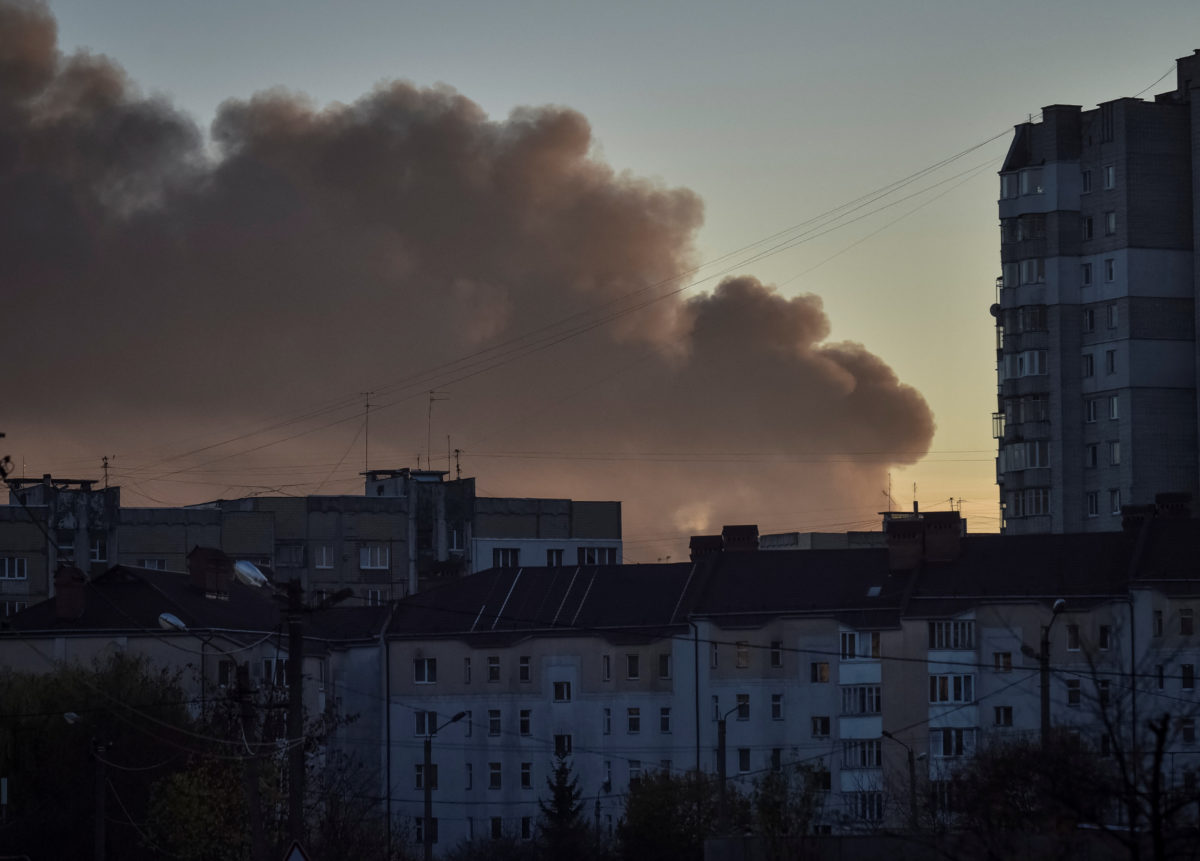A Russian missile strike on the northern Ukrainian city of Chernihiv resulted in the tragic loss of at least seven lives and left more than 100 individuals wounded, as confirmed by Ukrainian officials. The missile impacted the city center on a bustling Saturday morning, causing destruction to a theater and a university, and causing casualties across a significant public square.
According to Ukrainian President Volodymyr Zelensky, the number of injured individuals reached 117, including 10 police officers and a dozen children, as reported by Ukraine’s Interior Ministry. Even on Saturday afternoon, rescuers were still working to extract victims from the debris.
Chernihiv, situated approximately 90 miles north of Kyiv, had been under siege by Russian forces early in the conflict, but it had experienced relatively fewer attacks since Moscow’s troops withdrew from northern Ukraine the previous spring.
Expressing his dismay, President Zelensky conveyed through the messaging platform Telegram, “This is the type of action that unites the entire world against such brutality. A regular Saturday, which Russia turned into a day of suffering and mourning.” There was no immediate official response from Russia, but reports emerged that a drone exhibition showcasing military technology used in the war was taking place in Chernihiv on that very day. Russian state news agency RIA Novosti cited an individual familiar with the situation who claimed that the missile strike had struck the exhibition.
Mariya Berlinska, a local activist, shared on Facebook that she had been involved in organizing the drone event in collaboration with local authorities. The exact venue had been disclosed to registered participants earlier in the day. She stated, “As soon as the air raid alert was issued, the event was halted, and participants were repeatedly instructed to seek cover. Regrettably, some individuals still ventured outside… I personally sought shelter just moments before the impact.”
Footage of the aftermath indicated that the theater’s roof had collapsed from the force of the explosion. Ukraine’s interior minister, Ihor Klymenko, confirmed that those within the theater had managed to find shelter prior to the blast. He noted, “The primary victims of the incident were individuals in vehicles or pedestrians crossing the road, as well as those returning from church. All occupants of the drama theater had taken cover in time.”
This attack followed a series of strikes on civilian sites frequented by military personnel. In the preceding week, Russian missiles had targeted two hotels—one in the eastern city of Pokrovsk and the other in the southern city of Zaporizhzhia. In June, Russian missiles had hit a restaurant in Kramatorsk that was popular among Ukrainian soldiers. In the meantime, Ukraine had been consistently conducting drone strikes within Russian territory.
The Russian Defense Ministry reported that a Ukrainian drone had targeted a military airfield in the Novgorod region, causing damage to an airplane and igniting a fire. No casualties were reported. Additionally, the ministry stated that Russian forces had successfully intercepted a Ukrainian drone over the Russian Belgorod region, which shares a border with Ukraine. There were no casualties or damage in this instance. The ministry also claimed to have thwarted a drone attack near Moscow.
Just the previous day, Russia’s Defense Ministry announced that its air-defense systems had downed a Ukrainian drone in the center of Moscow. This disruption had led to the rerouting of multiple flights and an impact on air traffic. While Russian officials affirmed that they had escalated countermeasures against such attacks, unmanned aerial vehicles continued to infiltrate Moscow’s airspace.
(Source: James Waterhouse | George Wright | BBC)









